#Top chinese wuxia
Text
Luo Yunxi Appreciation Master Post: How can someone be so multi-talented?!
In case you did not already know, here are LYX's many talents. It's insane how many different things he can do at a near-professional level beyond acting!
1. Dance/Ballet
LYX graduated from the Shanghai Theatre Academy majoring in ballet with over 11 years of professional experience.

This is him doing 13+ pirouettes in a performance of Tchaikovsky Rhapsody (full video, he's on the right)
Interpret dance solo (燃烧的火苗) where he won the first gold ever for STA (video, news)
Swan Lake solo at the Taoli Cup Dance Competition in high school (video)
Modern dancing solo (黑白影画) at his graduation performance (video, he's the only guy in white)

He also taught at the Macao Conservatory for a year and danced in front of national leaders in Flying to the Moon (奔月) at the Macao 10th Handover Anniversary (video)
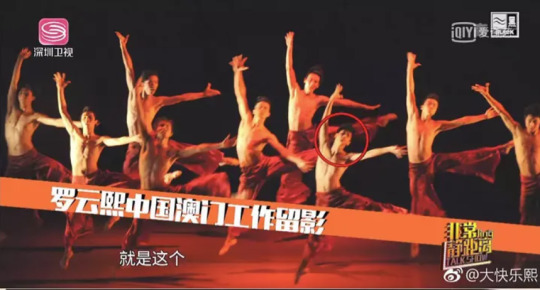
He's super flexible and has a strong core (despite being naturally thin)

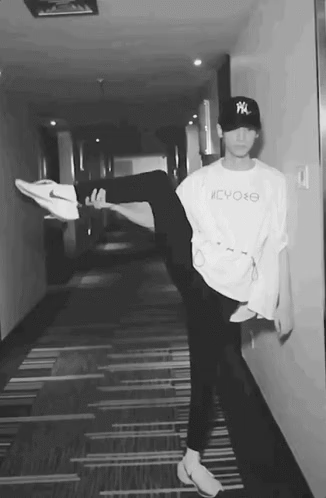
In response to request from fans, he performed the Black Moonlight dance in a now viral video on Douyin.
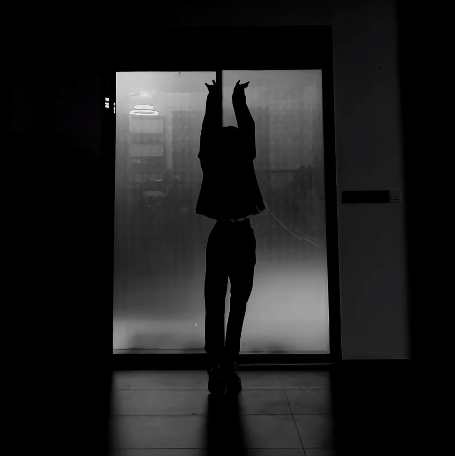
2. Wuxia / Posture
LYX is known as one of the best actors working today for wire work - you can see him here doing 3 consecutive jumps 2-3 stories above ground (compilation videos 1, 2)
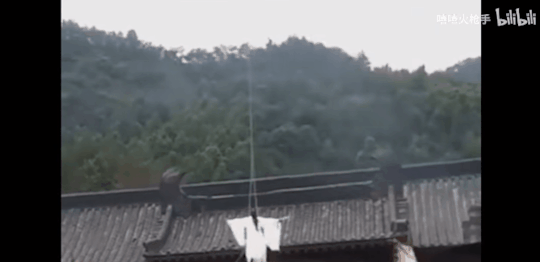
He does a lot of his own stunts and is often better (i.e. more graceful) than his stunt double, even though it's really risky and he's sustained some serious injuries from being dropped accidentally (And the Winner is Love: B roll video, actual scene, other BTS, other fight scenes)
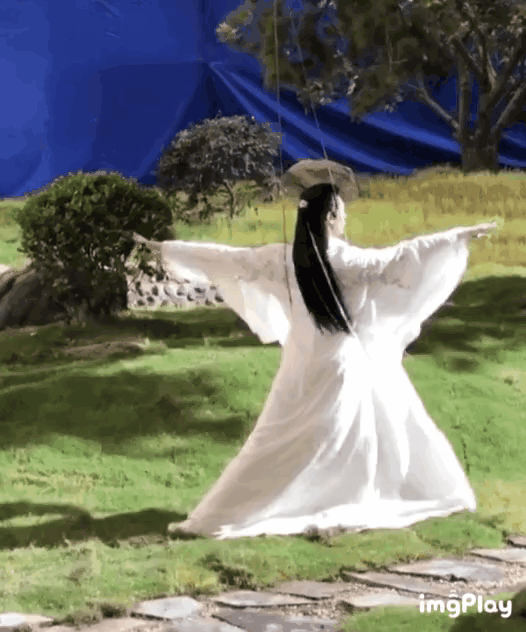

He moves with elegance, not just in action sequences (Ashes of Love fight compilation 1, 2), but people have made video compilations of how he walks, kneels, works his sleeves and train

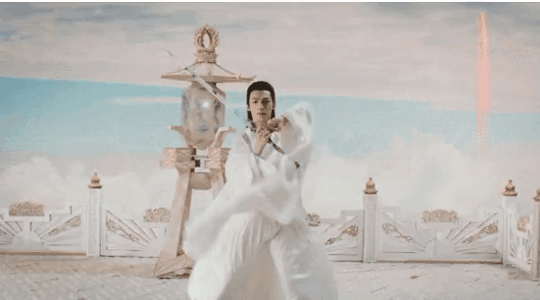

Of course, it's thanks to his dance foundation, but he also puts a lot of hard work into stunt training. Not something a lot of actors do because it eats up time to make more TV or go on variety shows (Ashes of Love stunt training, BTS)

3. Diving
He played a diver once in Flip in Summer (夏日心跳) and actually learned to dive... I mean he's no Tom Daley but this looks pretty good for an amateur... (full video)

4. Voice Acting
He’s always dubbed himself since circa 2018 (with the exception of And the Winner is Love due to Covid logistics issues), which is not the norm in Chinese drama (Ashes of Love dubbing BTS). In fact, he is sometimes the only person in the cast to use his original voice (e.g. in Princess Silver)
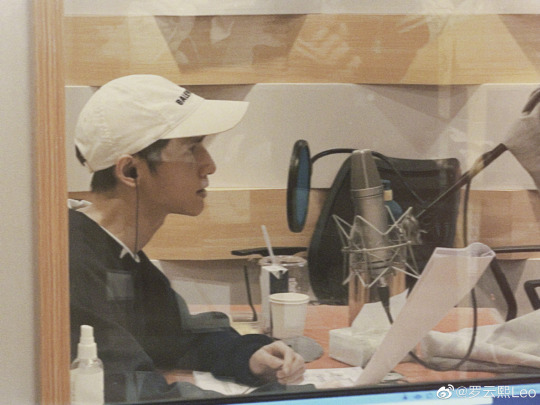
He also lends his voice to animations - he was the voice of Viktor in Arcane (BTS video), which received positive feedback (most people didn't realize he was not a professional voice actor)

He appears as a judge and live dubbing performer in Voice Monster alongside the top voice actors in China, Bian Jiang (aka voice of Yehua in Eternal Love, Nan Wangj in the Untamed) and Zhang Jie (aka voice of Donghua in Eternal Love, Sifeng in Love & Redemption). He has so much respect to those working behind the scenes, and it really shows (full video)
5. Singing
Some of you may know that he started out in a boy band called JL with Fu Longfei - these videos didn't age well, but here you go: JL (MV), 我们 (MV)
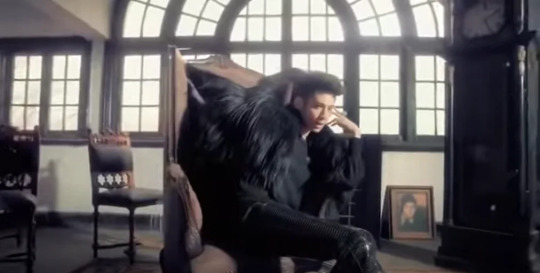
He has released a number of solo singles, including 缘起 (MV), 星星之火 (live), 不是我 (MV), 等风停 (MV). and 勇 (soundtrack), which he composed and wrote the lyrics himself (these are all mando-pop ballads if that's your jam)
He performed Big Fish 大鱼 at Tmall's 11/11 Festival (live video) - while his rendition is not as powerful as the original, he can hit really high notes with an impressive falsetto - I think it goes up to G5 (one octave above middle C)
He performed Pipa Xing (琵琶行) at the Douyin Festival (live video) - the notable part is his Peking Opera style singing at the end


He occasionally releases covers of songs on Chinese karaoke app Changba or Douyin: 要不然我们就这样一万年 (youtube), 黑月光 (youtube), 不染 (youtube), 山水又一程 (youtube)
He can also sing in other languages, including 喜欢你 in Cantonese (recording) - it's actually a very good cover and his Cantonese pronunciation is >95% accurate - there are parts where you can't tell he's not a native speaker.
6. Musical Instruments
He's an accomplished classically-trained pianist, which you can see in...
JL MV (video, starting around 3:30 mark) - don't mind the makeup, it's from ages ago
Mr Mossie season 2 (video)
Love is Sweet (BTS video) - impromptu jazz, he was deciding which song to play
Fan thank you recording (video)
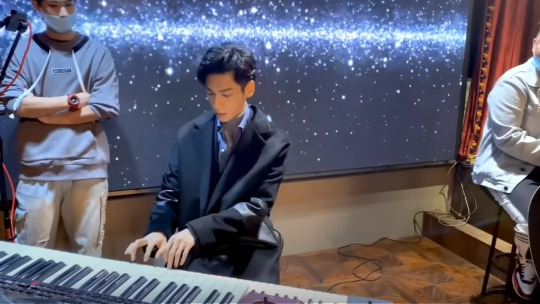
He also plays the guitar, though probably at an amateur level
7. Music Gaming
During college he was obsessed with this music game called O2Jam (劲乐团) to the point where he created new tracks (i.e. arrange/compose the music) for the company under the username Dinoroy (explained by himself here, videos of him playing).
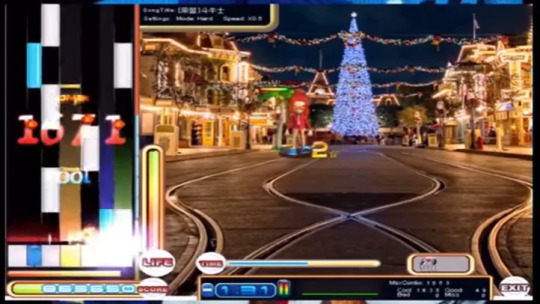
He became well-known within the fan community as the legendary D神 (D God). There are a lot of funny comments from old players saying that they thought D God is a bitter middle-aged recluse trying to screw them over with difficult tracks (read comments here).
D God was so prolific and reliable that gaming company accepted his submissions without review. Here are some of his best tracks - game arrangement only (Lydia, Croatian Rhapsody, Digital Emotions), music & game arrangement (黑暗魅影), original composition (光之乐章)
8. League of Legends
He's an LOL super fan, commentator, and player since season 2, went to see worlds in person twice, and was a cast member in a gaming show called Beyond It! Hero (episodes here)
He played the 2018 All-Star Event in Las Vegas teaming with reigning world champion Rookie and delivered the final blow that beat the other team 2:1 (video)
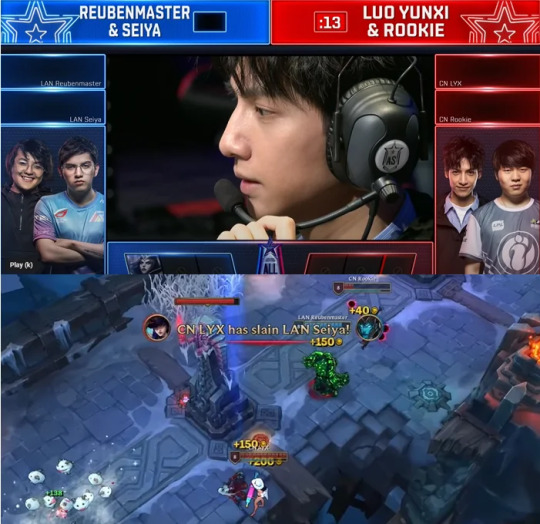
He got a quadra kill at a celebrity mobile game even though his team was crap (video clip)
He co-invested 1M RMB in a team led by Misaya 若风 - you can see them playing together in a live broadcast of the mobile game (video)

Update: Our longtime fan boy has become spokesperson of League of Legends and official commentator at the Asian Games 2023 in Hangzhou! The love is reciprocated!
9. Calligraphy/Drawing/Culture
LYX is known for his Chinese handwriting (he practices regularly) - there's even a font based on his handwriting called 汉仪罗云熙体 (download here)
He does all his own handwriting for marketing materials (e.g. Immortality below) and doesn't need a hand double for scenes where his character is practicing ancient Chinese calligraphy
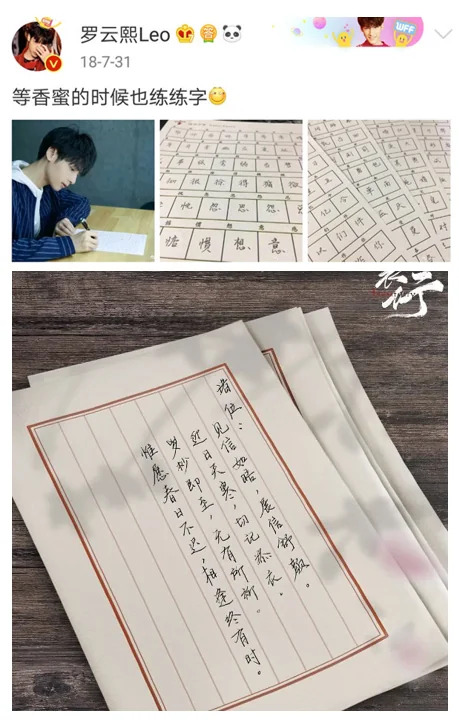
He's also got amazing drawing skills - check out the Queen of the Night 昙花 he drew as Runyu while waiting around on set in between takes (video)
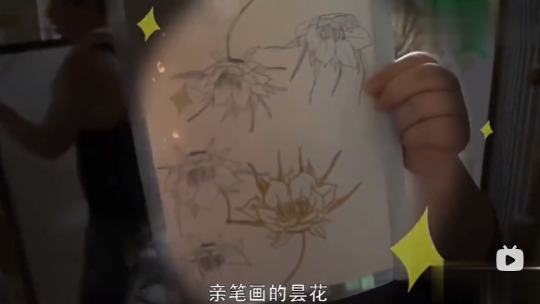
While he doesn't go on a lot of variety shows, he's often a guest on cultural programs, like the beauty of Chinese Calligraphy 书法之美 (video), Chinese Fans in 指尖上的非遗 (video)
His self-produced Mr. Mossie covers a lot of cultural topics (seasons 1, 2, 3), the segment on Hanfu was featured in the UNESCO Chinese Language Video Festival (video)
10. Photography
Luo Yunxi is often seen taking photos on set with his top-of-the-line Leica camera. Here are some of the photos he has shared:
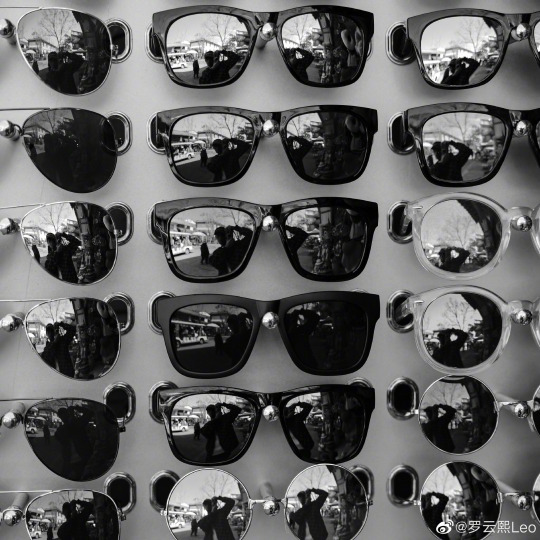

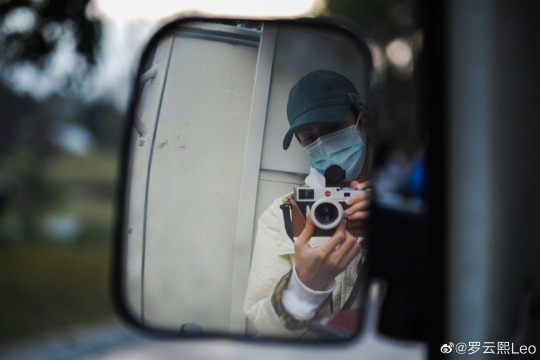
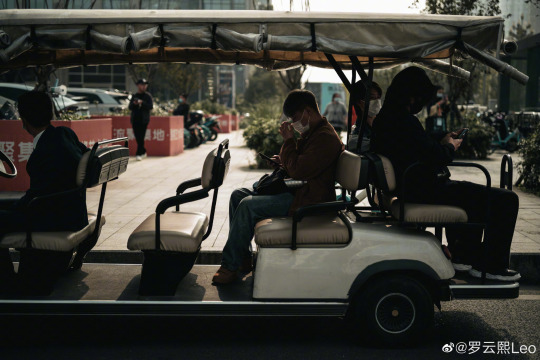
#luo yunxi#cdrama#till the end of the moon#chang yue jin ming#chinese drama#c ent#ashes of love#2ha#immortality
644 notes
·
View notes
Text
BLs with Strong Historical Elements
Costume dramas, historical BLs, and BLs with time travel or flashbacks to historical locations & times.
These are in order of my personal preference, best at the top.
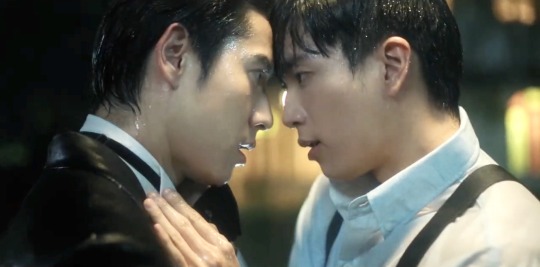
I Feel You Linger in the Air
2023 Thailand
IFYLITA is an exquisite BL, from filming techniques to narrative framework (much like Until We Meet Again). It's about a gay man from our time who falls into the past, becomes a servant to a noble house, and falls in love with the heir. It turns out this has all happened several times before. Steeped in history and family drama it edges into lakorn (but not as much as To Sir With Love and with way less scenery chewing). This is an elegant and classy soulmates BL... from Thailand which normally doesn't even try for classy. The main couple (both as a pair and as individuals) were excellent, particularly Bright (Yai) whose eye-work acting style is a personal favorite of mine. Pity about the ending. Oh it wasn’t that sad but it wasn’t good either. This show could easily have earned a 10/10 from me except that it fumbled the… erm… balls in the final quarter. Argh. Whatever.
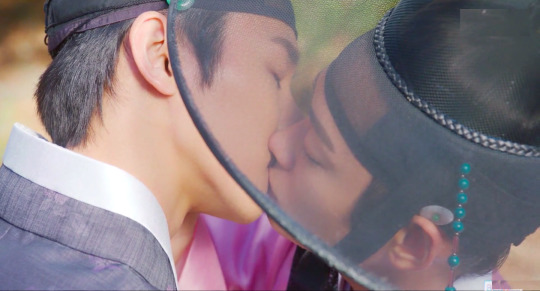
Nobleman Ryu's Wedding
2021 Korea - WeTV
A boy cross-dresses to take his runaway sister's place as a bride to a shy scholar, turns out they like being married. A historical setting allowed this BL to use some seriously old fashioned romance tropes (arranged marriage, evil step-sisters, Cinderfella) but also modern BL stylings like fake relationship & secret identity (drag) plus some cute gay panic. It reminded me of 12th Night more than anything else which just happens to be my favorite Shakespeare play. For all these reasons, I adored it.
(the ghat kiss!)

Tinted With You
2022 Korea - Viki
Fun stylish time travel meets portal fantasy with a likable cast, historical setting, and two actual kisses that mitigate the rough plot and issues around anachronisms.

Word of Honor
2021 China (censored) - Viki/YouTube?
I don’t rec Chinese stuff often, because I believe in censoring the censors, but this show is one of my favorites of the post 2016 censored bromances. It’s two murder-gay assassins (pining sunshine/tsundere), and they are so insanely gay for two boys who will never be allowed to kiss. Tropes include: wuxia, soulmates, paranormal, historical, and fantasy elements.
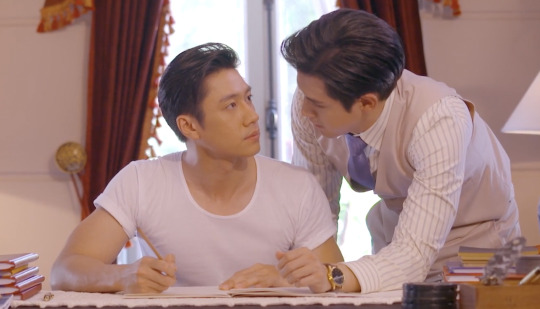
To Sir, With Love AKA Khun Chai
2022 Thailand - YouTube?
This is a true lakorn (basically Thai tellenovella or soap opera) with scenery chewing performances, especially from the mother characters. Gone With the Wind + Days of Our Lives but gay. That said? I loved it: A glorious central brother relationship (the best, made me cry), het romances, class divide + gay *gasp* main romance - oh my word, the campy drama of it all! Arranged marriage, rebellion, cut sleeves, over-the-top death with curses and regrets, beautiful if inaccurate costumes, secrets unraveling, cover ups, sparkle murder, sex herbs, coils within coils including snakes and murderous green metallic sequins (is anything gayer on this earth?). It’s a WILD ride but it does end happy for our gay boys. A man cries when he finds DEATH GLITTER. Come on! You haffa watch it. That said, like Manner of Death I struggle to rate something on a BL scale when it patently isn’t a BL. So I ended up giving this exactly what I gave that show, 7/10 I enjoyed it a whole lot, but not as a BL.
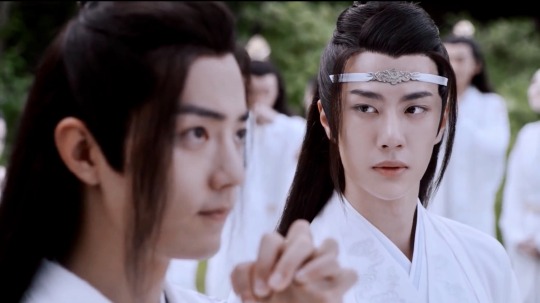
The Untamed (Special BL Edition)
2020 China (censored) - YouTube
Censored wuxia bromance, amorphous ending. Probubly the best known BL of its kind out of China and responsible for bring many fans to the BL side.
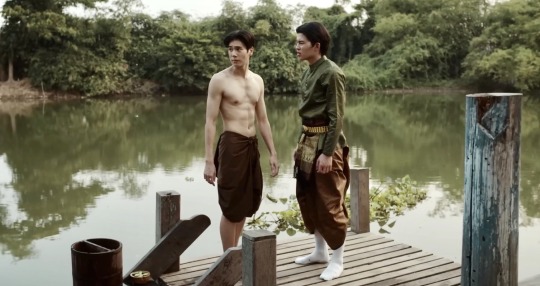
Our Skyy 2: Never Let Me Go
2023 Thailand - YouTube
I was nervous to watch this PondPhuwin vehicle but I liked it a lot! Doomed soulmates + paranormal time travel to fix the past. I’m happy for the outfits and the dancing (if not the singing). It’s not a bad premise and it’s nice to see GMMTV lean into its high production values for a change. I'd adore a full historical starring these two and this was definitely the best of the second series of Our Skyy. I don't think you have to have watched the original Never Let Me Go to enjoy this.
Legend of Long Yang: Rebirth
2017 China
Gaga
Whipping boy trope... literally, servant character takes the strap for the prince, who then makes him his bodyguard and lover when he becomes king. Low budget historical, comes off as kind of cosplay wuxia version of Irresistible Love, but we get (in the credits) an actual kiss, and they both live. So yay for small mercies.

The Director Who Buys Me Dinner
2023 Korea (historical flash backs)
iQIYI
A new employee at a film company encounters a director who claims to have lived 300 years and insists that they have to date (eat, hug & kiss) if baby doesn't want to die. It has a lot of Japanese elements, not the least of which are: an office setting, the fact that every character in this show is unhinged, and a killing of the gays. Featuring a gorgeous & stellar cast, TDWBMD should have utilized them less for melodrama and more for chemistry. This BL surprised me by going there with a lipstick mark AND an actually gay idol. But (you knew there was a but) while it's a unique twist on an office romance it is NOT a unique twist on the doomed red thread trope, resulting in it feeling less than the sum of its parts and ultimately unsatisfying. This might have also had to do with the fact that this was one of those KBLs where I felt how very short it was the whole time I was watching, like I was missing something constantly, in every episode. Worth watching for some but seriously flawed.
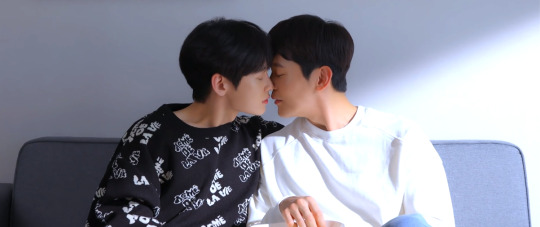
First Love Again
2022 Korea (historical flash backs) - Viki
A popular novelist who remembers his past lives meets his soulmate for the third time, only to find she has been reincarnated into the body of a man. This one started out a touch mean-spirited, but we eventually got a good kiss. The confession/rejection scene was justified and the reconciliation and ending was... fine. All in all, the pacing felt rushed and the romantic arc was underdeveloped. They go from like to love to boyfriends in a red hot minute. But that’s par for the course with Korea’s short form. If you don’t mind a heavy does of melodrama in your BL this one has a solid story with a strong concept that’s well acted and produced, making it a classic KBL with better than average chemistry but ultimately a touch forgettable.
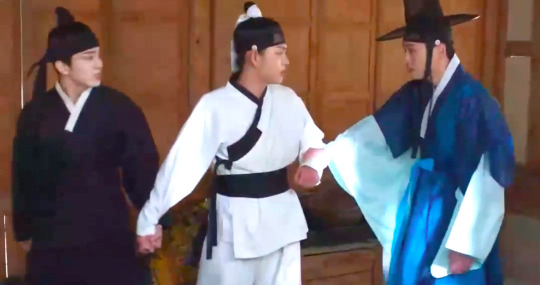
Love in Spring AKA Spring of Crush
2022 Korea
This show was all over the place with uneven acting, narrative, and focus (sometimes it wanted to be a slapstick comedy, sometimes a depressing melodrama) which meant no one, actors or viewers, took anyone or anything seriously.... AND it’s a bromance. I was left wondering if SalHyung is now code for “they were roommates” in Kdrama historicals but otherwise largely apathetic and unimpressed. Korea, I now know you can do better. Do better.
Mermaid's Jade
2019 China (censored-esk) - Gaga
Kills the gay.
The Male Queen: Han Zi Gao
2016 China - Gaga
Kills the gay. Schrodinger's BL, both a BL and entirely not one at the same time.
Diary of Heong Yeong Dang
2014 Korea
Kills the Gay
I was gonna do a top 10 list, but there aren't enough by my metrics, so many end sadly.
This post at the behest of @verymuchof thank you for the idea!
Dated April 2023, includes only BLs that had finished their run by that date. Not responsible for cool costume flix that come after that. But you should check the comments to see if any have been added by others!
I might have missed a few that only have time historical elements since I don't always track those.
Also I would like to point out a decided lack of Japan on this list. My ninja yaoi consuming tiny past self is VERY upset about this void.
WHERE ARE MY GAY NINJAS??!!!
(source)
#historical bls#time travel bls#bls with historical elements#korean bl#chinese bl#thai bl#I Feel You Linger in the Air#Nobleman Ryu's Wedding#Scholar Ryu's Wedding#Tinted With You#Word of Honor#Khun Chai#to sir with love#The Untamed#Never let me go#Legend of Long Yang#The Director Who Buys Me Dinner#First Love Again#Love in Spring#Spring of Crush
183 notes
·
View notes
Text
wuxia and confucianism
Hey. Thought I'd answer the wuxia-confucian question very briefly. I did suggest wuxia being closely knitted to confucianism, but I do understand the other perspective of wuxia being anti-confucian. Quick answer only because I've got little time right now -- might add on to it later!!

confucianism
First the central themes of confucianism:
常 (cháng): Virtues of compassion and courtesy. 仁 (rén)、义 (yì)、礼 (lǐ)、智 (zhì)、信 (xìn)、忠 (zhōng)、孝 (xiào)、悌 (tì) (there are more). These in order in crude translation mean compassion, righteousness, courtesy, wisdom, integrity, loyalty, filial piety, and respect to one's older siblings. These are the main ideas Confucius, the founder of Confucianism, wished to spread through his philosophy.
纲 (gāng): Order. This is about the relationships between people, the filial piety of child to their parents, the relationship between significant others, between friends and teachers, and expanding outwards in the sphere of influence in our circle of life, the patriotism and loyalty of a liege to his lord.
Understand that Confucius came up with these ideas in a time of war. He lived his life traversing different kingdoms and establishing his prominence by getting emperors to trust him as a consultant and employ his school of ideas. As such, these beliefs are very much centred around creating harmony and order in society, and of course entails the respect of commoners and lieges to their lords (because why else would kings employ his beliefs over other schools of philosophy if not so?).
wuxia
Moving on to the wuxia genre, the 侠 (xiá) in wuxia emphasises righteousness. xia, as people, are itinerants and rebels in the fictitious pugilistic society who tire of the power of the aristocracy and seek to use their own, often unlawful ways, to help others through 锄强扶弱 (chú qiáng fú ruò) -- helping the needy and going against the strong (the morals are debatable but that's me trying to sum up wuxia in 5 minutes off the top of my head rip).

conclusions
So I guess that's enough information for you to form your own conclusions, and here's what I think, at the very least.
Against Confucianism -- Subverting the power pyramid. Many of the heroes/xia's in wuxia are lawless rebels. They aren't good, upstanding citizens of the society. Hell, xia was first popularised from 游侠列传 (yóu xiá liè zhuàn) in the Han dynasty records, talking about how a "xia" went against the officials and helped the commoners in the name of righteousness. This goes against the confucian beliefs of respecting your lord and serving the kingdom.* That's why I can understand why some would consider wuxia going against confucianism.
Align with Confucianism -- Righteousness. Ultimately, however, wuxia is about righteousness and nobility and honour, defined by society and commoners and not by royal blood. These values of etiquette, decorum, and nobility were long ingrained in the hearts of all these chinese characters, from when the courtesy and etiquette rules were defined in the Zhou dynasty, and afterwards, from the Han dynasty on, when emperors heavily employed Confucian beliefs in education and throughout society because it helps in rebuilding a harmonious society.
Confucianism is about compassion and righteousness, the staples permeating and defining chinese culture in the last two thousand years, and it is these values that serve as the central impetus of the xia and wuxia genres. People are born into these values; as such they fight against the injustice they see, and thus engenders the lost xia's of every dynasty.

*And well, even Confucius wasn't that dead set on fealty to lords. Confucian highly venerated loyalty, but when the court is corrupt, they acknowledge insurgence over the mindless following of an emperor. This is a story for another day, one I would have to back up with more quotes and citations, but I hope this answered your questions, or even better, let you form some conclusions of your own :)
Confucian philosophy is only one aspect that has correlations/influences over the "xia" genre, there are many other interesting things to say about Taoism and Buddhism as well (e.g. Jin Yong's wuxia classics have quite a bit of Buddhist values in the characters owing to author preferences), it's definitely worth looking up on these things if you're interested!
initially reblogged under the original meta post on wuxia, xianxia, and cultivation differences, but i realised it was too long and would bury the reply, so please don't mind me opening a new post for this again.
feel free to ask and discuss!!
#chinese#cdrama#danmei#philosophy#chinese language#chinese culture#wuxia#cnovel#chinese history#confucius#confucianism#chinese philosophy#fate's meta
388 notes
·
View notes
Note
Hi! I have a question. Im not entirely sure if these belong to chinese fashion because I only ever saw them in uncredited pictures. Theyre very intricate "eye patches", seemingly made from like gold or metal? they cover only one eye and I was wondering if they have a name or if its something made up? thank you for all your work!
Hi, thanks for the question, and sorry for taking ages to reply! (x)
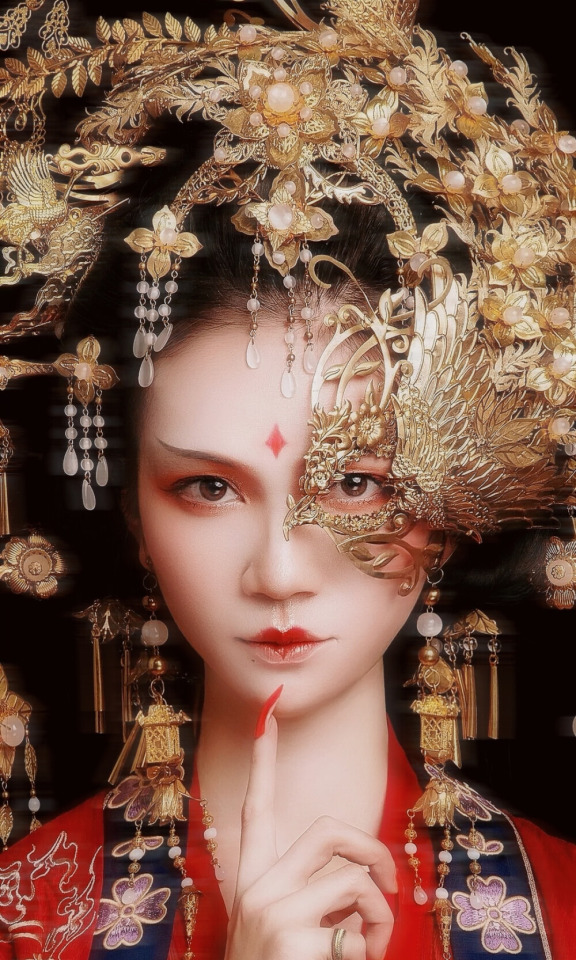
The intricate gold/metal "eye patches" covering only one eye that you see are most likely based on "半面妆/Ban Mian Zhuang" ("Half Face Makeup"), a popular Chinese novel written by 萧十一狼/Xiao Shi Yi Lang and published in 2015. Well-known Chinese gufeng-style illustrator 古戈力/Gu Ge Li provided beautiful artwork for the novel, as seen below (1, 2):
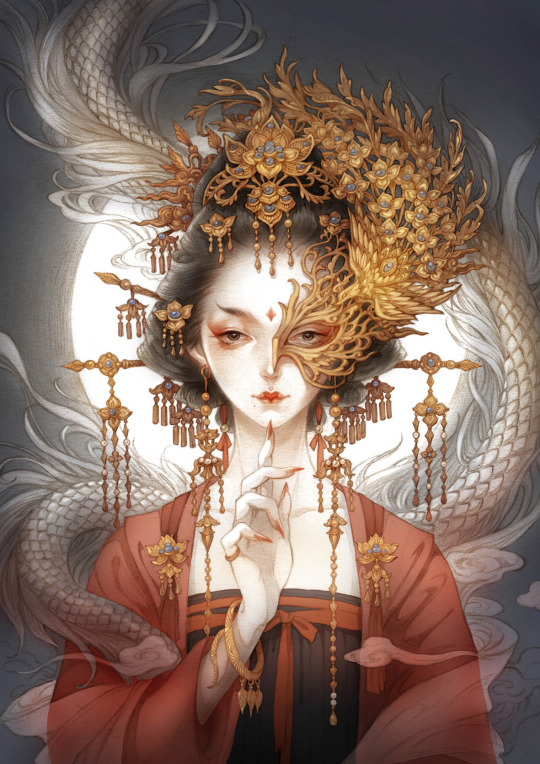
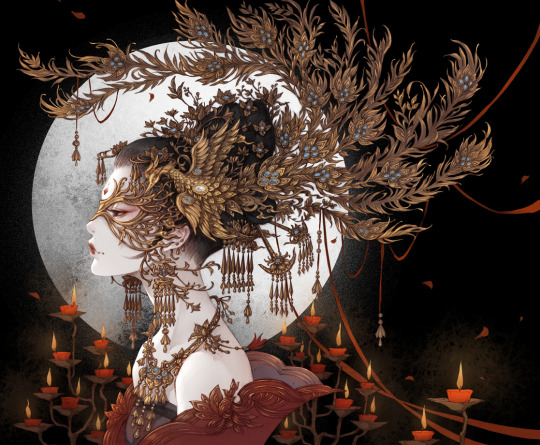
Gu Ge Li's artwork inspired many hanfu photoshoots with ornate eyemasks (1, 2, 3, 4, 5):
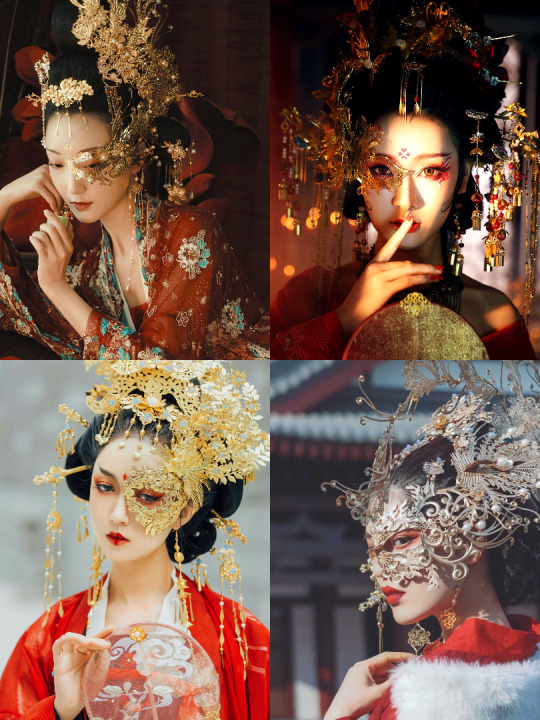
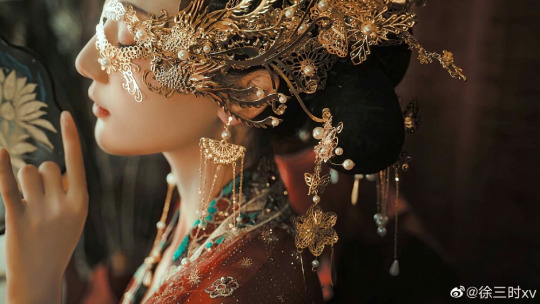
These eyemasks are essentially made-up fantasy masks with Chinese elements incorporated into the design. They are not based on historical Chinese masks, which look very different. Thus you can just call them 面具/mianju, which is the general Chinese term for masks.
On a related note, similar types of fantasy masks also appear frequently in Chinese guzhuang (period costume) films & dramas, especially in the wuxia and xianxia genres. As @audreydoeskaren touched on in this post, these masks are typically not historically accurate, but are included for aesthetic effect (like many other elements in guzhuang media).
Below - fantasy masks in Chinese film/dramas. Clockwise from top left: women - Painted Skin: The Resurrection, Legend of Nine Tails Fox, The Empress of China, The Blue Whisper; men - Love and Redemption, Xuan-Yuan Sword: Scar of Sky, The Untamed, Battle Through the Heavens:
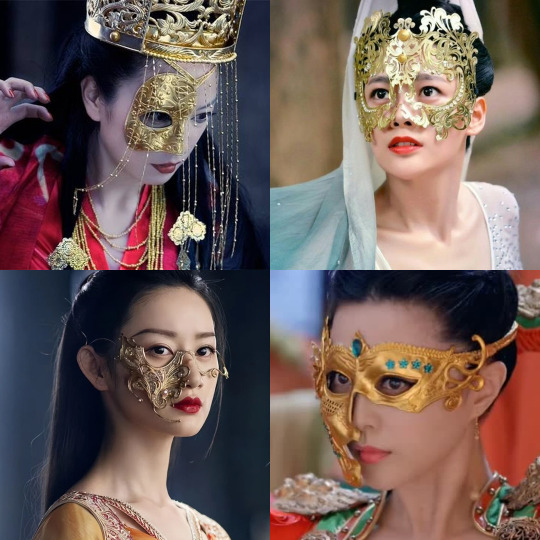
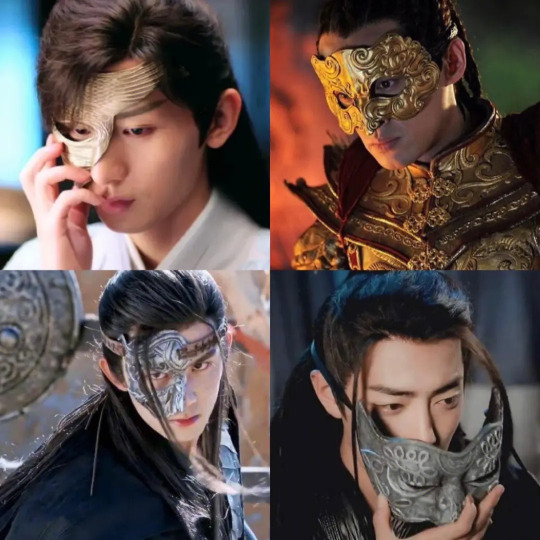
Deriving inspiration from art and television, fantasy masks have become a popular accessory for hanfu photoshoots.
For more examples of Chinese masks (both historical & fantasy), please see my masks and eyemask tags.
Hope this helps! ^^
#eyemask#masks#hanfu accessories#hanfu#半面妆#banmianzhuang#古戈力#gugeli#art#gufeng#cosplay#recreation#guzhuang#drama costumes#drama#>100#reference#ask#reply#chinese fashion#chinese clothing#china
474 notes
·
View notes
Text
re: jianghu as a queer space in mlc
here to answer @redemption-revenge !! in reply to this post
(also tagging @markiafc @ananeiah <3)
there are many definitions of jianghu, but this is specifically based on the framing of jianghu as the space people retreat to, away from the mainstream sphere governed by the imperial court. in that is a sense of rejection and defiance against the patriarchal, heteronormative values and norms, which had been enforced through a fixation on upkeeping order in the society. as such i guess it's not too much of a stretch to interpret jianghu as a queer space in a way that's characterised by a spirit of nonconformity to the norms. consequently, it makes sense for stories set in jianghu be used to illustrate and navigate queer identities/experiences/feelings - which I came to believe mlc had made really good use of.
there's always kind of a dichotomy between 江湖 jianghu and 庙堂 miaotang (ie. imperial court). like in mlc, there are two separate, distinct law enforcement bodies from the respective spheres - and jianghu strives to keep imperial court from interfering in their affairs. like how li xiangyi firmly stands against getting imperial court involved in jianghu matters. like how fang duobing is actively running away from the grip of the royal court on his life choices. the rejection of the mainstream (very conveniently and broadly put, confucian) norms in mlc also manifests in many of its key relationships being non-familial (in the sense of blood/marriage-based kinship) and there being little emphasis on the main characters' biological familial ties. (anyway this is for a whole different meta on its own... edit: it's here)
it's then actually a sort of irony that the imperial court's institution of law and order is what sigu sect/baichuan court had been formed to be a de facto counterpart to. so when li xiangyi becomes li lianhua, it triggered the process of deconstructing the meaning of installing such an institution and the need to maintain order to a fundamentally nonconforming space such as jianghu. mama fang's seemingly throwaway line of criticising li xiangyi and his mission is in fact the thesis statement in this particular reading of mlc's story: jianghu makes its own rules. nobody should dare to do it in its place.
now deprived of all means to fight like he used to, li xiangyi's new life as li lianhua is essentially a refresh of how he views jianghu. the death of li xiangyi the leader of sigu sect and top of wulin, meant taking apart the idea that jianghu is a lawless arena where the fittest fight to the top for power and control over wulin. and li lianhua then putting together lotus tower, living a life focusing on a domestic lifestyle this time for real far from the reach of the governance both from the imperial court and sigu sect/baichuan court, is him living the jianghu that's defined as a space away from any form of conformity.
with that, there's also a sense of queerness to this particular way of living as li lianhua, if you consider the chinese conceptualisation of gender being more social than biological. if femininity and masculinity were respectively characterised by inner/domestic sphere and external/any space outside of that, dare I say...it actually makes li lianhua's moving house mindblowingly smart as a metaphor for gender fluidity. lonely wanderers are common in wuxia but housed lonely wanderers? he carved for himself a domestic (ie. feminine) space in the wilderness - among a jianghu space that's still dominated by masculine values of aggression and competition. and being freely mobile makes this feminine space more fluid and less tied down than the more rigid, inert domestic, feminine spaces in traditional mainstream society. when you combine it with how his character has been fem-coded - even as li xiangyi (eg. yin-coded powers/energy) (also a whole other meta on its own... edit: it's here now), it speaks to a part of him that has always found appeal in qualities conventionally associated with femininity of stability, gentleness and non-aggression. and a rejection of expectations to fight and destroy. he is defining who he is in his own terms, in the true spirit of jianghu.
#莲花楼#mysterious lotus casebook#my posts#lhl#lhlmeta#jielin writes something#also ofc the queer reading wrt defiance against norms in the way of choosing jianghu extends to fdb (and dfs?) individually too#fdb. ace. in particular#this meta can go longer. so much more to be said. but i was committed to posting it before i go to bed#but i'll say here first that i think it's the femininity in lxy that is what precisely makes him an unparalleled swordsman. not in spite of#apologies if it doesnt make any sense or just going off tangents in general lol it's 2am#struggled supremely writing this. for hours i was mind to mouth.meme#i sound batshit insane by the last part but at least that idea had been somewhat peer reviewed by my lovely friends...........#mark and ana don't read though before yall finish the show#also this is what happens to ur brain when ur other media obsession is a hardcore confucian critique/deconstruction#of a royal court intrigue story
126 notes
·
View notes
Text
MXTX Interview with Risa Wataya for Subaru Magazine P.7
Which creative works influence you:
Risa: Please tell us which creative works influence you.
Moxiang: Professor Jin Yong's wuxia novels (*)! Professor Jin Yong is my number one teacher in the craft of writing. His skill in crafting wuxia stories, his artistic palate, the sheer intellectual depth and philosophical complexity of his stories and characters. Professor Jin Yong's wuxia novels have a profound and immeasurable influence on all modern Asian creative professionals.
(*: the legendary late professor Jin Yong. He's not as well-known in English-speaking spheres due to the complexity of his works being very difficult to translate to languages outside of the Sino-Tibetan language family. But in Asia, he's a literature titan. He's comparable to Tolkien in that he laid the foundation and codified the tropes of wuxia as a modern genre (alongside Gu Long and Liang Yusheng) and brought about the first and subsequent wuxia waves, and that there's also university courses and entire research field on Jin-Yong-ology. However, he's a much more prolific writer, having produced 15 wuxia series, among which 14 are of comparable length or longer than the Lord of the Rings and The Hobbit combined.
It would be no lie to say there's not a single creative professional in Asia that is not influenced by Jin Yong in some way, shape, or form.
One of Jin Yong's trademarks is the overwhelming, often obsessive, sometimes destructive love that his characters exhibit. There's not one work of his that is not threaded through with larger-than-life romance, not just among the protagonists, but also among the villain characters. The trend of modern Chinese literature, especially wuxia and xianxia, to portray larger-than-life romance can be traced directly to Jin Yong's influence.
Interestingly, he's also credited as having accidentally created the proto icon of danmei as a genre.
I'm sorry. I'm so excited I want to cry. Professor Jin Yong is also my first teacher in the craft of writing. It turns out we all step in the footsteps of the giant, huh, Moxiang?)
I also watch a lot of 90s Hongkong movies. Do you know "Shaolin Soccer'?
Risa: I do know!
Moxiang: Stephen Chow's comedy movies, Tsui Hark's wuxia, and fantasy horror movies. Lam Ching-ying's walking corpse movies. I love all of these.
Risa: That's closer to jiangshi (*) than modern zombies.
(*: a type of Chinese walking corpse. The name literally translates to stiff corpse. Jiangshi is typically translated into Chinese hopping vampire in English due to their similarity to Western vampires. They are the dead that comes back to life. They suck yang energy from living people. They fear the smell of garlic. Etc... Jiangshi has real-life basis in an extinct profession in China: the corpse walker, i.e., people who made a living out of 'walking' corpses back to their home provinces in times of war and chaos. Corpse walkers are mentioned in Liao Yiwu's historical book 'The Corpse Walker')
Moxiang: That's right. That's right. A hopping jiangshi. I watch a lot of such movies. Some movies are from before I was born, such as 'A Chinese Ghost Story' and 'Sword Man' (*). I have watched them more than ten times! If I meet someone who has never watched those movies before, I will enthusiastically drag them along while saying, "Let's watch them together!" My novel bears obvious and immense influence from these movies... For example, the funny scenes in my story are very close to the atmosphere of comedy scenes from Hongkong cinema. Or the walking corpses in my story. My inspiration came from these undead corpses. In the novel, I mentioned using glutinous rice as a cure for corpse powder. This knowledge came from the movie "Professor Jiangshi" (named 'Mr. Vampire' in English in the Wikipedia).
(*: Both of these movies are Tsui Hark's movies and are counted among the top 100 best movies of Asian cinema. They are known for their fantasy elements, eroticism, and homoeroticism. These movies came from a time where Asian cinema was pushing boundaries left, right, and center. Swordsman and its spin-off were adapted from Professor Jin Yong's The Smiling Proud Wander. The very same work in which he accidentally created the proto-icon of danmei. I wrote an essay about this as part of danmei history last year. I will make a separate post after this.)
Risa: To be honest, when I reached the part where glutinous rice was used to cure corpse powder in 'Mo Dao Zu Shi,' I was moved.
Moxiang: Ah? A Japanese author saw the glutinous rice scene in my novel and linked it to jiangshi movies... That is so surprising!
Risa: When I was young, I watched a lot of jiangshi movies. I love them!
Moxiang: I feel increasingly close to Ms. Risa now. As for other foreign literature, Emily Bronte's 'Wuthering Heights' greatly influences me. When I read it during elementary school, I was shaking from excitement. Perhaps because of the influence of Wuthering Heights, that whenever I see complex, intertwining love-hate situations, I feel such joy and nostalgia in my heart.
There's also my favorite childhood mangaka Rumiko Takahashi! This kind of light-hearted, rowdy atmosphere where characters argue and rib each other is so cute! I especially like 'Ranma 1/2'. I think it's the best comedy manga. Other than that, 'Inuyasha' can only be described by the word romantic. Romantic! To this day, Kikyo is still a goddess in my heart.
Risa: Although 'Ranma 1/2' is a work that features China in it, what do Chinese people think about it?
Moxiang: The first thought that comes to my head is 'charming!' After that is probably fond familiarity. This work (Ranma 1/2) features many Chinese elements. I feel that the distance between our hearts is lessened.
To be Continued (The next part will be the last)
Translator: Sythe / NPD Khanh
308 notes
·
View notes
Text
Dramas I watched in 2023
[Chinese Dramas]
My Journey to You - Wuxia. Spy games, badass ladies, subtextually homoerotic cousins. Gentle & sweet ML who melts the cold & calculated heart of FL assassin. Gorgeous setting and cinematography. Left me with a burning desire to see Zhang Ling He play more gentle babygirl MLs and Esther Yu to play more anti-heroes. Absolutely perfect to me.., if we just pretend the director didn't add a pointless cliffhanger in the last 5 min. Which is how I choose to live my life.
Story of Kunning Palace - 'rebirth' costume drama that I waited to air for like 2 years or something and then it... actually didn't disappoint? And was almost everything I wanted? 😳😲 This is THE couple for that post about the pair that need to be stuck in a neverending monogamous relationship with each other as a quarantine measure to protect everyone else.
A Journey to Love - wuxia perfection. The stand-out drama that I wasn't expecting. Murder mommy & murder daddy became an otp for the ages and all of the supporting characters were interesting and dynamic. I cared about so many more characters than I expected and never fast fowarded. Just immensely satisfying.
The Ingenious One - wuxia with a weak, scheming scholar protagonist on a revenge quest (yes, we've all heard that before!) who puts together a group to execute his cons, Leverage style. I love me a martial artist x weak scholar couple 👌. Some exciting twists & turns in this one. Both A Journey to Love and The Ingenious One are best enjoyed coming in with little to no information. Hell, skip the trailers and simply dive in!
Hidden Love - Modern drama. Top tier romance-novel-on-screen writing and acting. It felt honest and real. The coming of age arc for the FL was well done. Great brother & sister relationship that feels authentic. The ML's backstory was so heart breaking because it was never overplayed for melodramatics. Just a quiet pain, a distance and a burden he carried with him.
Road Home - Modern. "Do you remember who I am?" / "Yes. If I were to turn to ashes, I would still remember you." I am very weak for the "reunited exes", "second time around" trope when the actors are capable and the breakup wasn't a narratively convenient 'misunderstanding'. As a career woman who works very long hours, I also tend to appreciate modern drama relationships where the couple manages to stay functional & supportive while not having a lot of free time for each other. That's my version of wish fulfillment 😂. I felt like this narrative made me fully understand why they couldn't make a long distance relationship work as young adults but now they're ready and have experienced enough of the world to know that they are happier with their lives joined together than apart.
Love You Seven Times - xanxia. I wrote a whole review post (love letter) on this one, since it seems rather underrated. I feel like this one may actually end up one of my fav examples of the genre. I just sincerely bought into the couple and their mutual devotion.
The Last Immortal - xanxia. Terrible trailer but turns out to be a decent show. I'm a fan of the genre, so I'm enjoying it. (I think you do need to be, to enjoy it - it doesn't transcend or really subvert..just a solid representation of xanxia) I like both lead actors and they do a good job with the material. It's working better for me than Ancient Love Poetry and Ashes of Love. After being eager for Song of the Moon in 2022 but then being let down (I dropped that one quick), I'm very happy 2023 brought me 2 xanxia I liked.
Three Body - modern sci-fi. Book 1 of my fav sci-fi trilogy of recent years. As a novel fan first, I was pleased to see it on screen with talented actors. Eager for book 2.
Love Me, Love My Voice - modern drama with an unusual couple (2 introverts) and dubbing fandom hyper fixation. A laid back relaxation drama, to de-stress with. Minimal plot, no conflict. Just sweet slow burn relationship building, singing & audio performances. Supportive friendships.
Here We Meet Again - modern drama that suffered from sloppy editing. I mean almost incoherent editing in a couple places, like when they are counting down the days until getting married and then.. It's not mentioned again? 🙃 But I very much enjoyed the couple's chemistry. I can't say it was objectively good but it sure was compulsively watchable for some reason.
Royal Rumors - Costume drama that was so aggressively mediocre that I don't have any real explanation for not dropping it. Except I find the lead actress unspeakably alluring. Blame my hormones.
Dropped
Back to the Brink - xanxia. Great concepts but the execution didn't work for me. I'm not a fan of slapstick and wacky humor within serious subject matter. (It's the reason kdramas can be very hit or miss with me.) The amount of humor layered into AJourney to Love is basically my limit for tragicomedies. (Note: I did go read the book and it was very entertaining - the tone was much more to my taste.)
My Lethal Man - modern. Embarassing english name, but they had me in the first half, not gonna lie. Then after her identity was exposed, I wasn't feeling it idk. Sometimes it's just not that complicated.
Destined/Chang Feng Du - costume drama. idk really why I dropped. I watched about a 3rd of it and then was distracted by other shiny objects. I plan to come back to this one in 2024 and finish.
Romance of the Twin Flower - costume drama; unholy abomination of a great novel. I hope somehow, someday, the culprits pay for their crime. Need I say more?
[Korean Dramas]
Perfect Revenge Marriage - a modern rebirth tale. For the 90% of it, I was high on the love of a drama that is just what you didn't know you wanted. The camp, the dedication, the scenery chewing, the glorious evil step mother. It was magical. And then the last 2 episodes I found underwhelming. I can't really explain it, the climax just didn't hit for me. But that's very much a personal taste issue and I'd definitely recommend to all drama lovers who enjoy the genre. Seriously, the performance of evil step mommy was a master class.
King the Land - modern workplace romance. I've heard complaints that there wasn't much of plot. But tbh that was fine with me, because some dramas are simply character pieces. This was all about the personal growth of the FL and ML. I ended up invested and rooting for the ML to become a decent guy who isn't a gross classist like his dad.
Destined with You - modern reincarnation drama. I blame my lingering kdrama good feelings about King the Land for convincing me to keep powering thru this one. Such a strong start but then half-way in I began to realize it simply wasn't going to go into the direction I wanted it to. I still have no idea what they intended to communicate with that love potion subplot.
Vincenzo - modern crime drama. I was late to the party on this one. But after I got around to watching the delightful Kinnporsche, this was rec'd to me as another drama that embraced the bigger than life unreality of Fantasy Mafia™ and provides a rollicking good time. Absolutely ridiculous and compulsively watchable. 10/10.
[American]
House of the Dragon - Awful people doing awful things to each other, as a 1st act before everything goes straight to hell. Plus freaky dragon-riding fantasy incest. What's there not to like?
Fall of the House of Usher (YES i DO watch every horror drama by Mike Flanagan thx) - Was it as good as the first 3..? No. Did I still breathlessly binge it in 2 days? Yes. Awful things happening to awful people, poetically. 👌 👌
58 notes
·
View notes
Text
Sometimes I wish Zhongli at least wore a distinctively wuxia/xianxia*-style (default) outfit instead of what is basically a suit from waist up, even with Genshin’s typical outfit stylizations (lots of of ribbons/flowing clothes, metallic details, and visible layers). In terms of genre, Liyue’s Archon Quest is… basically a xianxia plot huh
If he’s all about Liyue traditions… I mean it’d be nice if Zhongli wears something closer to Jin Guangshan’s outfit (from the web series The Untamed) but brown with silver/bronze/gold accents. Doesn’t necessarily need the long loose sleeves as it’s not uncommon for wuxia outfits to have tighter sleeves fit for combat.
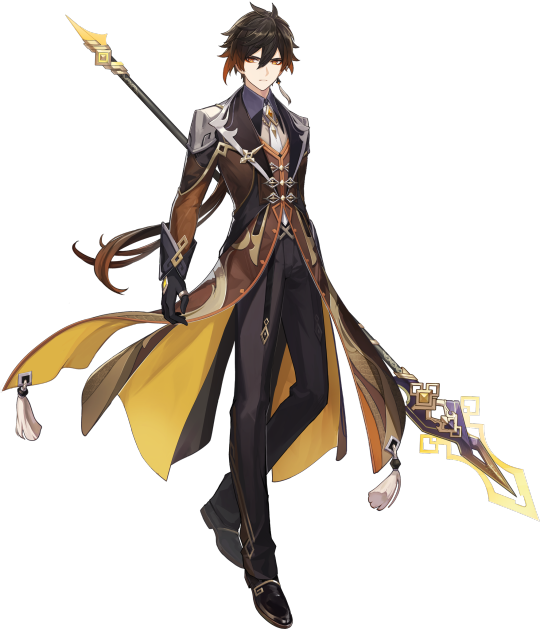
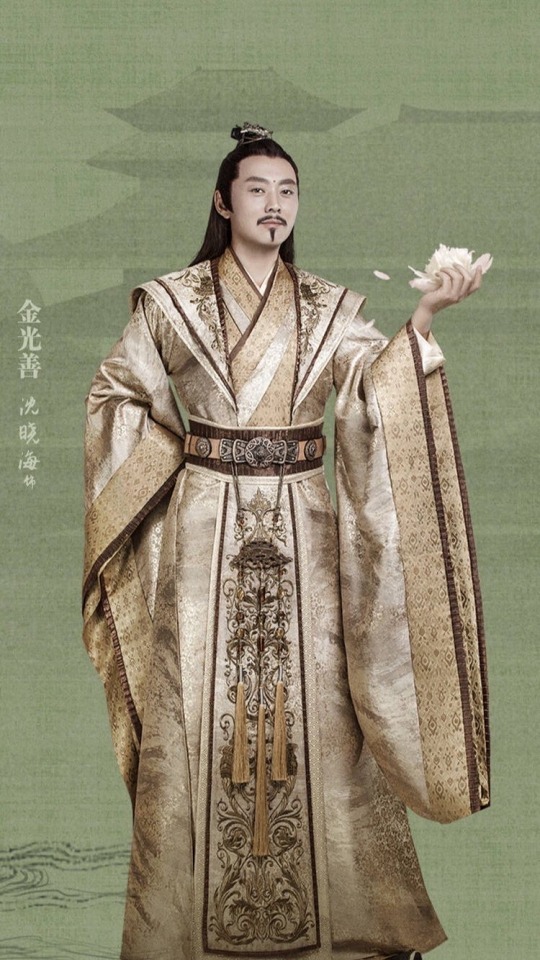
If it’s his outfit in the 2023 Lantern Rite… I mean it seems like it’s supposed to be a qipao with a caplet on top, but it’s so stylized the golden lines make it feel strangely… futuristic? (I’ve no context for Lantern Rite so I don’t know if it’s got a lore reason or anything)
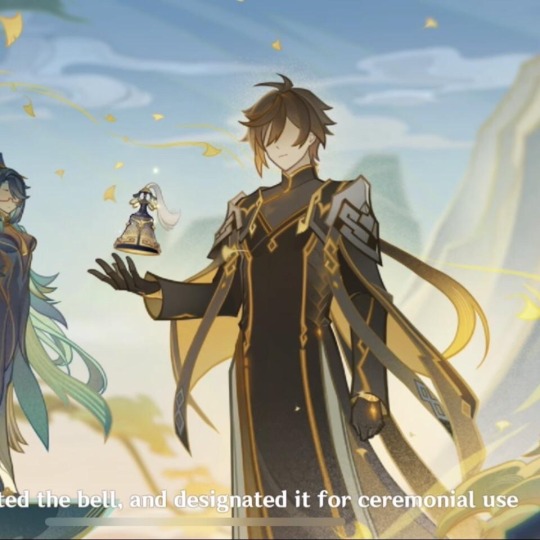
*wuxia = Chinese martial arts drama genre. Loyalty, betrayal, family, politics, combat, CHIVALRY (e.g. helping the weak, self-governing), etc. xianxia = Chinese spiritual cultivation drama genre. Similar but maybe more mortals vs supernatural spirits/gods, and less mortal vs mortal. Costume-wise there’s not a very striking difference between the two (in my experience)
#arguably. GI has lots of xianxia tropes#(narratively)#at the same time. my wuxia definition#is BASCIALLY Diluc’s backstory in a nutshell. so…#dusk rambles#dusk analysis#Zhongli#genshin redesign#(not really)#character design#wuxia#Genshin impact#design analysis
69 notes
·
View notes
Text
i love and appreciate western media very much, but there really are some feelings only chinese media can tap into. it's the eternal tension between conforming to long-established tradition v. defying it all and being something new, something deviant. we find that conflict in the ideological battles between chinese philosophies; the criticisms and derivations between confucianism, buddhism, daoism, mohism, etc. we find it in the way chinese states are always torn between honoring traditional values v. loosening their grip to accommodate those at the margins. we find it in people like myself; i grew up in a very religious chinese buddhist family, having to studiously study buddhism and some prominent confucian texts. inside the cultural consciousness, there are real living people. and they want so badly to break free from convention, its suffocating and painfully limiting. at the same time, it feels so important and they want to keep engaging with it, they can't abandon something so close to their identity and heart.
mlc also dedicates itself to discussing this push and pull. and it lives in this grey area, this overlap of tradition and nonconformity. fanghua exemplifies this wonderfully, by embodying the traditional and non-traditional family all at once.
lxy is fdb's master, his role model. he is the ideal patriarch of jianghu (as @seventh-fantasy very rightly points out, lxy is the ideal picture of a mohist leader, mohism is the ideological inspiration behind wuxia fiction and all). on the other side of this same coin, llh serves as fdb's protector and guardian. he takes fdb under his wing and roof, looks out for fdb and passes his teachings down to him. llh raises him as a fair, wise and dependable jianghu figure, so much so that llh names fdb as his successor in the farewell letter. fdb inherits everything that was llh's, his house, dog, his skills and his legacy.
to fdb, he is both lxy and llh's heir. he owes them a lot. he wants to do right by them. he is their charge, the seed they both nurtured.
lxy/llh is also 长辈 an elder to 晚辈 the junior, fdb. there is an age gap between lxy/llh and fdb. in addition to his canonical status as master, guardian and uncle in a way, llh is a member of the older generation and fdb is a youth of the new age (the era of lxy's sigu sect v. the era of baichuan's sigu sect). tianji is fdb's family in regular society and llh is fdb's family in the jianghu world. and fdb is lucky to have parental figure(s) in both spheres.
to lxy/llh, fdb is his responsibility. fdb is his burden and also his pride. he is the naive youth that llh accepts into his home to mentor. lxy/llh holds seniority. and there is a certain amount of distance he expects from fdb. even if fdb refuses to abide. similar to the princess zhaoling who was kept at arm's length by the older girls in the mansion, fdb is kept at arm's length by llh.
so traditional dynamics and social roles lie at the root of fanghua. and yet there is:
a) an explicit rejection of blood family (fdb rejects sgd and lxy/llh chooses his adopted jianghu family over bloodline) wherein the family & marriage is said to be a foundational unit of chinese society,
b) an ambiguity, it is hard to slap one single label on fanghua because they embody multiple things at once. their dynamic derives from the traditional chinese concepts of family and seniority. there is duty and obligation that goes both ways. but the boundaries delineating each form of that are broken down. fanghua resembles father/son, and mother/son, and uncle/nephew, and master/disciple in one package. fdb also believes them to be shoulder to shoulder in friendship, equal partners, and that adds another layer of ambiguity.
there is a unique mobility and ability to traverse between definitions, and that marks them as non-traditional. an elusive quality that is built on top of the traditions that we know.
#莲花楼#me is mark#posts that are just for a handful of people#and i do love that fanghua is a little incestuous#which feels right for a story that plays with what kinship is#family v. friendship v. queerplatonic#they occupy very recognizable concepts#and yet they manage to render themselves unrecognizable
34 notes
·
View notes
Note
Do you mind if I ask your top 5 (or top 7) favorite BL and your top 3 (or top 5) favorite GL? And why do you love them? It can be from any media : books, manga, anime, manhwa, tv series or movies.....
Hard question again! I'm going to do 7 for GL and 7 for BL, again under the cut!
In no particular order:
GL:
Revolutionary Girl Utena - is including it on this list cheating since it's not primarily GL? I don't care, it's too good to not recommend. A teenage tomboy fencer gets 'engaged' to a mysterious girl by winning a duel, many more duels happen alongside symbolism, feminist messages and a really mature handling of topics like depression and abuse. REALLY dark though, but worth it! Deserves its place as one of the classic anime.
Bloom into you - incredible handling of internalised homophobia, first love, high school relationships both in the platonic and romantic sense and golden child syndrome. A heartwarming but occasionally heartwrenching story that felt very real. Bonus points for the author actually being a sapphic woman.
The Handmaiden - sapphic thriller from Korea set in the early 1900's! Dark but incredibly engaging, surprisingly happy and hopeful despite how much the girls have to suffer to get their happily ever after. The book it's based on, The Fingersmith, was also great!
GAP - Thailand's first GL series and got so popular there are now multiple other projects coming this & next year! The protagonist is a uni graduate hired in her idol's company only to discover the lady is both meaner and hotter than she thought. Lesbian crisis and full-on romcom shenanigans follow, though the series also comments on traditional family values in Thailand acting as an excuse for homophobia (the idol, Sam, is in an arranged engagement to a man as ordered by her grandma). Don't worry though, the show is mostly very fun and light & ends very very happily for the ladies.
Whisper Me a Love Song - look, as a former band kid I can't not mention the band lesbians manga. It's a highschool romance full of miscommunication and funny/cute shenanigans with occasional sadness to balance it all out. Very relaxing. It's getting an anime adaptation next year so looking forward to that!
Riddle Story of Devil - as an action series fan this was pretty incredible. A school full of assasins, everyone is sapphic and they're all badasses? High school me was obsessed and I still am. The manga is much better though, the anime is both way less gay and develops the characters much less due to the story being compressed into 12 episodes.
Legend of Yunqian - short fantasy drama from a small Chinese studio, it's about a regular young lady going back in time via a magic fan and falling for a magical warrior woman. Lovely and available on Youtube for free!
Honorary mentions: Flip Flappers (anime), Clear and muddy loss of love (novel), She likes to cook and she likes to eat (manga & TV series)
BL:
Heaven Official's Blessing - come on, it's incredible. Dark fantasy with immortal love that breaks even the most powerful curses, a complex and deeply human protagonist, a lot of emotional moments and incredible use of flashbacks to slowly reveal his backstory to the readers- what's not to love? Just a warning, when I say it's dark fantasy I'm not kidding. The series has funny and light moments but when shit gets real, it gets REAL.
No.6 - just like RGU isn't technically GL, this isn't technically BL but I am gonna talk about anyway, it's incredible. It's a dystopian sci-fi story about Shion, a teenager who discovers a government conspiracy and works to stop it alongside his new friend/love interest Nezumi. It treats the gay relationship super casually, there's no sexuality angst or anything, it was super refreshing! Read the novels though, the anime compressed the story a lot.
The Untamed/Mo Dao Zu Shi - love the intrigue, love the main romance, love the fantasy elements! My first Chinese series and one I hold dear for introducing me to the wuxia (Chinese fantasy) genre. Any version of the story is great but I'd recommend to start with the series and then read the books.
Kinnporsche - it's deeply insane and I love it for that. Everyone is gay, everyone commits crimes (they're in the mafia, so. Yeah) and it makes for a really entertaining show even if its darker elements aren't always super well handled.
Not me the series - Motorcycle gang of young anarchists against corruption! Very radical and critical of capitalism and the police system, engaging and fast paced. The director/showrunner is a trans activist/filmmaker so it's not like she doesn't know what she's talking about. It's very universal so I'd recommend it even to people who normally don't watch BL. One minus point for minor queerbaiting with 2 side characters, nothing major but it did bother me a bit + felt unnecessary in a series full of queer characters.
Cherry magic - queer office romance + mind reading! If that combination sounds interesting please do check it out, it was super cute. Bonus for very realistically human protags and an explicitly aroace side character.
Semantic error - opposites attract-type romance between an introverted, collected STEM prodigy and an extroverted art student partnered together for a project. The protagonist is autistic and written pretty well so I latched onto the show immediately, bonus points for side queer representation (bi character who's a super cool and pretty lady, love her).
Honorary mentions: Word of Honor (series), Yuri on ice (anime, only homoerotic sports anime to make the gay explicit, iconic), Nobleman Ryu's wedding (series, short but v heartwarming!)
26 notes
·
View notes
Note
hey, big fan of your blog! read some of your qianqiu metas, and was thinking lately about the presentation of the statist consolidation of power and framing of political unification as an unproblematic moral good in a lot of the wuxia/xianxia I've engaged with. having grown up with these genres, I know that censorship and sociopolitical circumstances are big influences on the message that gets put out. (1/3)
but also as an anti-authoritarian looking to art and literature for countercultural inspiration, I guess I've found a lot of wuxia lacking in a vision for a radical future. this certainly isn't to say that art needs to be radical to have value, or that wuxia spaces haven't created avenues of self-expression and joy for oppressed groups in an airtight society where there are dire risks attached to political activity. (2/3)
wuxia/xianxia are my favorite genres, but many aspects of its narratives seem to uphold structures of oppression (i.e. ableism, colorism, xenophobia, misogyny, etc). but hey, 嫌货人才是买货人, no such thing as perfect, best thing to do, I suppose, is to engage with art with a critical eye. thanks for your time! (3/3)
an anon after my own heart, hello! you're definitely getting at certain themes, assumptions, and values that in a way were built in to the wuxia genre as it has evolved today. whether you’re reading classic authors like 金庸 Jin Yong or remixers like 梦溪石 Meng Xishi, I’ve definitely noticed that wuxia as a genre has, well, complicated relationships with the structures of oppression that you brought up
(I'm leaving xianxia out of the discussion atm as I’m less familiar with it as a whole, but also I don't think it has the same concerns of nationalism and historicism that wuxia does)
in many ways, the modern wuxia genre is a heavily compensatory genre, which I mean specifically in a “hey, compensating much?” kind of way. it took me a very long time to realize and process this, diaspora kid that I am, but so much of contemporary Chinese culture is still profoundly affected by the events of the past 200-250 years. I mean, when you think about it, the imperial dynastic system wasn’t all that long ago; in many ways, Chinese society is still reeling from the century of humiliation, the breakneck industrialization, the mass deaths of the 20th century in war and famine and revolution and government abuse (there is also the matter of the government deliberately evoking public memory of past atrocities to fan nationalistic sentiment for its convenience, which not only keeps historical national humiliations top-of-mind but also disrupts processes of collective memory and collective grieving).
Stephen Teo, in Chinese Martial Arts Cinema: The Wuxia Tradition, tracks the origins of wuxia as a genre, and from the beginning wuxia has been bound up with anxieties over masculinity and national agency, which in literature can often be one and the same. Teo, in tracing early forerunners of wuxia and the historical context of its emergence, notes that "[i]ntellectuals initially regarded the warrior tradition in the genre as one of the elements that could provide a positive counterweight to China's image as the 'sick man of Asia'" (Teo 37).
Given the repeated incursions and invasions onto Chinese soil and China’s status as a semicolony for much of the 19th and 20th centuries, it’s almost too obvious how the wuxia genre provides a balm for those exact anxieties: the martial warrior tradition (the 武 wu in 武侠 wuxia, if you will) directly addresses fears regarding the emasculation of Chinese men; the historical settings of wuxia novels often set during or against a backdrop of past imperial Chinese glories; the featuring of military triumphs over “foreign barbarians” who sought to invade or occupy imperial land, or even better — the protagonist, raised among the “wolfish barbarians,” is uniquely positioned to combine the “raw, savage strength” of “barbarian” culture with the “cultured civility” of Han Chinese culture; the strong emphasis on tradition(al aesthetics) and traditional Confucian ethics of morality and righteousness as contrast and counterpoint to the rapid modernization and Westernization of 20th/21st century Chinese culture... you get the idea
Teo’s book surveys the wuxia genre over the past century, particularly through film, and he discusses how wuxia in the 21st century begins “to manifest as made-in-China historicist blockbusters mixing the epic form with wuxia" — which is to say, wuxia has increasingly become intertwined with the genres of period dramas and historical epics:
"Having been grafted onto the period epic, wuxia becomes a showcase of Chinese history, seeking to be universally accepted while at the same time locating itself within the historicist confines of the nation-state." (168)
wuxia’s increasing hybridization/conflation with historical epics (particularly in Zhang Yimou’s 2002 film 《英雄》 Hero, John Woo’s 2008 - 2009 《赤壁》 Red Cliff duology) increasingly politicizes the genre, and that politicization thereby links wuxia to national issues of structural oppression, like the ones you mentioned: the statist consolidation of power and framing of political unification as an unproblematic moral good, ableism, colorism, xenophobia, misogyny... any one of these could carry a research paper on their own, and I don’t presume to be able to solve or explain away any of them in a tumblr post, but I do think there are many ways in which the wuxia genre’s (often uncritical) support of structures of oppression are directly linked to the origins of wuxia as a genre that was in many ways wish-fulfillment for a 20th/21st century Chinese culture wracked with political turmoil, economic disaster, and cultural uncertainties
I particularly like Teo’s discussion here:
"...The grand historicist self-fashioning of the genre in a film like Hero and its offshoots Curse of the Golden Flower, The Banquet, The Warlords [...and] Red Cliff demonstrate the kind of nationalistic self-aggrandisement that critics find so disturbing, particularly so when the nature of the regime is authoritarian and autocratic, ever ready to invoke militaristic power as the means to their end of a unitary nation state.
“However, if we see the wuxia genre as a mirror of the nation, it shows China in perpetual crisis, torn apart by internal strife and the urge to cohere as a unitary state." (186)
the framing of political unification as an unproblematic moral good is something I find particularly interesting, because a lot of that has to do with Chinese history. the famous opening line of 《三国演义》 / Romance of the Three Kingdoms references this directly: 天下大势,分久必合,合久必分 / “All great movements under heaven [follow this rule]: that which has fallen apart for a long time must come together, and that which has been together for a long time must fall apart.” The entire cyclical narrative of imperial China has been this: a dynasty rises, a dynasty falls, the land fractures into squabbling kingdoms, out of which a single dynasty eventually rises, to eventually fall, to eventually fracture again. and so, a dynasty’s collapse and the subsequent societal fracturing into warring territories is naturally paired with the crisis and violence that ensues with the fall of a state. simply put, there just isn’t a period of Chinese history (or if there is, I don’t know of it) where political fragmentation has not been associated with civil unrest; therefore political unification must be an unproblematic good as it eliminates domestic warfare and returns order to the central plains. handily, this supports the current regime’s nationalistic and authoritarian agenda, and so we see this particular moral value reflected in much of wuxia fiction
not to simply brush aside ableism, colorism, xenophobia, and misogyny all with a wave of a hand, but I do think that much of this has to do with contemporary Chinese society’s current attitudes towards these issues. when a society privileges pale complexions in its beauty standards (see: the triptych of 白富美, the omnipresence of beauty products that advertise skin tone lightening, the entire entertainment/idol industry), colorism is a natural (and shitty) result. government-spurred nationalism, historical racism, and Han chauvinism all contribute to the rampant xenophobia of much of Chinese media, especially when it comes to depictions of non-Chinese Asia (Central Asia, Japan, SE Asia in particular). when wuxia needs a faceless enemy, it reaches for the barbarians on the border. ableism and misogyny are issues that contemporary Chinese society struggle with now; the issue of ableism in particular feels stifled in the cutthroat nature of the current job market (the flipside of China’s massive labor force is the knowledge that every person is fundamentally replaceable), and the depths to which cultural misogyny runs in China is growing steadily more and more evident as the gender gap widens
and when it comes to fiction, when it comes to literature, widespread change often doesn’t occur until there is a societal call for it. I’m thinking of the U.S. science fiction and fantasy scene, which went through its own reckoning with diversity and genre-reified prejudice over the past decade and a half. and now we have brilliantly diverse authors and searingly postcolonial works, queer characters on the regular, Tor Books itself advertising to us soft sad queer freaks on tumblr. the journey wasn’t easy though, nor is the journey remotely close to over, but the fact remains — there was, in a sense, a collective cultural awakening about the ways in which more classic SF/F often utilized and reified racism, prejudice, misogyny, ableism; and subsequently, there was a conscious effort towards holding the genre(s) and its creators accountable, towards writing and supporting and amplifying voices previously shunned and silenced
and, well, to be fully honest, I don’t think that cultural moment has arrived yet for wuxia. this is not to say that there are no wuxia creators out there trying to decolonize the genre, but that we haven’t reached the turning point where decolonizing the genre and examining its history of misogyny, xenophobia, ableism, and colorism is expected, accepted, even celebrated, and I don’t think we’ll get there until contemporary Chinese society goes through a cultural reckoning with these same issues
I also think it’s worth mentioning that whatever that collective cultural awakening/reckoning looks like, it must be and will be distinctively Chinese. Chinese culture maintains different moral values from Western (Euroamerican) culture; contemporary China faces different social issues and political problems than contemporary Euroamerica. whatever this journey looks like, I don’t think it will look like or should look the same as what the U.S. went through/is going through. decolonizing/deimperializing East Asia is inherently different from decolonizing/deimperializing the West, so I would like to stop short of making prescriptive statements on what that cultural turning point should look like
that being said: if anyone’s run into some good postcolonial wuxia lately, I’d be VERY interested to hear more about it
#ack this got long#please take my armchair political/social theory with a Costco container of garlic salt#both Teo and this great article about 英雄 get into the whole political messiness of tianxiaism which is FASCINATING but also TOO MUCH#I do think a major reason why I didn't enjoy 'saving your kingdom while burnt out' much is because of the rampant nationalism#which I think is absolutely fascinating on a theoretical level — the Ni Zhange article dissects it thoroughly#like the absolute galaxy-brain daring of priest to rewrite an alternate historical steampunk version of the century of humiliation#but at the same time.........#moof I didn't really talk about danmei or gender but I ONLY HAVE THE ONE THINKY TAG#hunxi thinks about danmei and gender#心怀杂念 字数无量
112 notes
·
View notes
Note
Heyo! So it seems like you've watched a bunch of K-dramas and I was wondering if you have any recommendations for a first one to watch for someone who's never watched any Korean shows, let alone many dramas either? I know this is vague and of course tastes vary, but does anything come to mind? Not sure if it's a common sub-genre, but bonus if they aren't super dark and grim. Thanks so much, love your writing!
i love foreign dramas! most of what i watch is from korea and china, but i've watched a few really good ones from thailand and japan too
some of these exist multiple places, but if it's possible to watch it on viki, that's my recommendation. their translations tend to be the best
business proposal (korea, netflix) is a really good intro to kdramas and covers a lot of common tropes, plus the main and secondary couples have FANTASTIC chemistry, which can be rare. a woman pretends to be her rich friend on a blind date, but it ends up being with the ceo of her company and identity shenanigans and hijinks ensue. if you like this one, you'll also really like what's wrong with secretary kim? (korea, viki) but i'd watch this one first because it's a little bit less wacky
the romance of tiger and rose (china, viki) is extremely cute and stars zhao lusi, who i love. a scriptwriter gets trapped in her own alternate historical drama script as a character that she kills off in episode three and has to try and change the story to ensure her own survival and falls in love along the way. it's meta enough that it gives you a good sense for the vibe of historical/fantasy chinese dramas. the acting can be a little meh from some characters in this one, but the leads are all great and respective emotional support characters for the male and female lead are hysterical
word of honor (china, viki) is i think a digestible-ish intro to the wuxia genre, but honestly you just kind of have to jump into wuxia and trust you'll figure out the tropes and world basics as you go. a dying former leader of an assassination organization gets stalked by an unhinged serial killer who's also an excellent cook. they fall in love an adopt a son. the ending here isn't fully happy as some beloved characters die
mr. queen (korea, viki) is one of my absolute favorites and straightforward enough that i don't think the politics are too confusing for someone going in with no background in historical korean culture and politics. a male chef drowns and ends up in the body of queen cheorin, the main wife of the king from the late 1800s, and is determined to return home and NOT fall in love with the king. it's unintentionally very queer and the acting and plot is really a plus here.
bad buddy (thailand, youtube) is a bl drama that is about the sons of neighbors who hate each other going from eternal rivals to boyfriends. it's cute and the chemistry pops off. thai dramas are top tier for non censored queer content, but be prepared for some awkward dialogue and a lot of product placement. the chemistry of the leads tends to make up for this. a tale of 1000 stars (thailand, youtube) is one of the worst offenders of this, but the leads carried that show on the power of their vibes and sexual tension alone. kinnporsche (thailand, dramacool) is the best thai drama i've watched, but i would not describe it as light.
crash landing on you (korea, netflix) is another favorite, but you do need to just disassociate a bit from the fact that it takes place in north korea. a successful girlboss ceo is paragliding, gets caught in a storm, and ends up north korea. a military official finds her and after some light threatening agrees to try and get her back to korea instead of turning her in or killing her, but to pull this off she has to pose as his fiance. the relationships in this one are so good, and it's a happy ending for our main, but it takes some trials and our secondary couple does NOT end happily ever after.
i'm currently going feral over love like the galaxy (china, viki), but i think it's better appreciated after consuming another historical chinese dramas so you have socio-political-trope context for what's happening
goblin (korea, viki), untamed (china, viki), and nirvana in fire (china, viki) are some of my ABSOLUTE FAVORITE shows but i think opening with them would be a mistake and you'll miss a lot nuance going in cold
302 notes
·
View notes
Text
Ziseviolet’s 2022 Tumblr Top 10
1. 3,306 notes - Jan 2 2022
Q: What exactly does Dunhuang style mean?
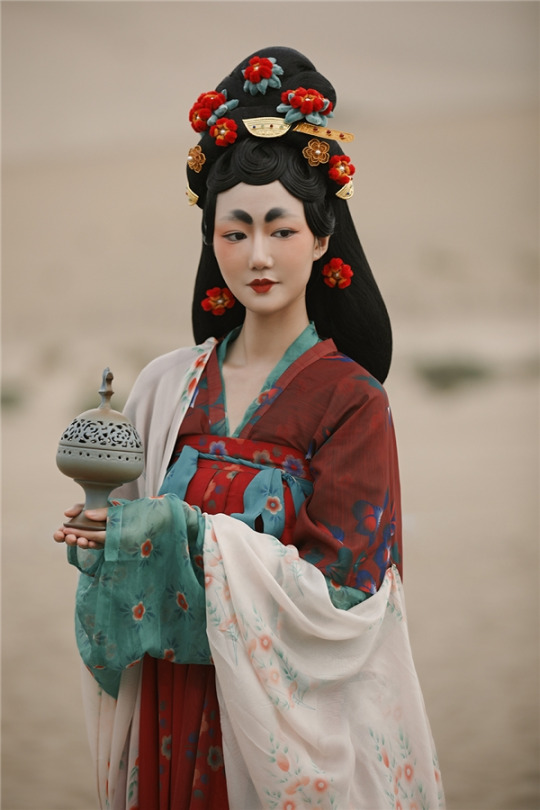
2. 2,167 notes - Mar 7 2022
Q: I keep wondering about the reason for qipao/cheongsam not be considered a hanfu?

3. 1,262 notes - Jan 10 2022

4. 1,167 notes - Jul 15 2022
Dior Mamianqun Controversy
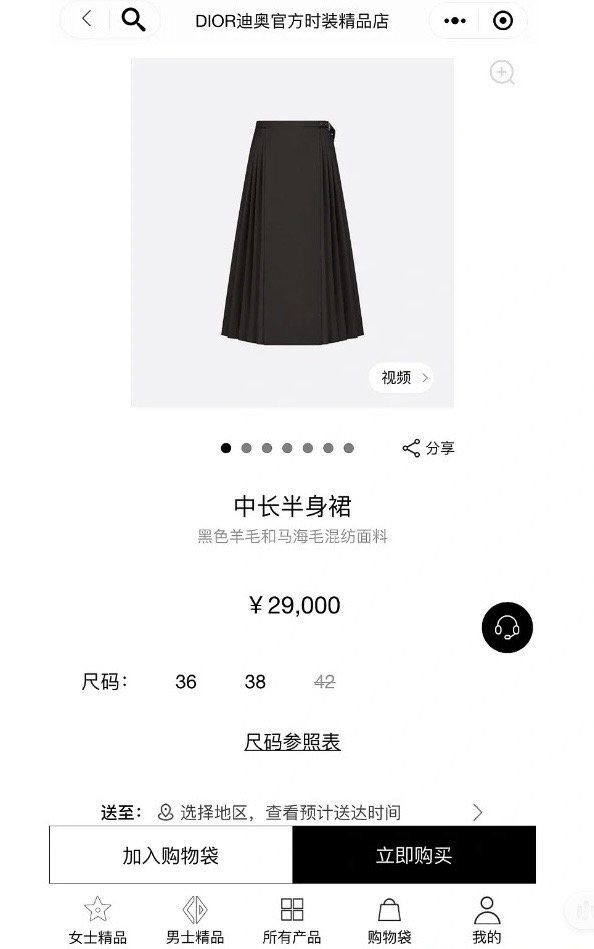
5. 528 notes - Oct 8 2022
Q: In wuxia I see that they have half their hair up and the other half down. Is there a certain period where this hairstyle directs from?
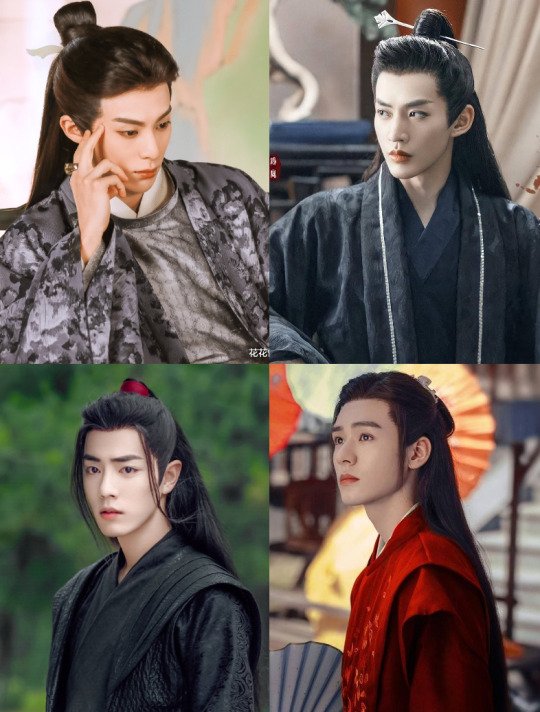
6. 492 notes - Apr 11 2022
Q: In many novels it is mentioned that men would tie their hair in ponytails- but so far I haven’t seen any in tv series? Was it common?
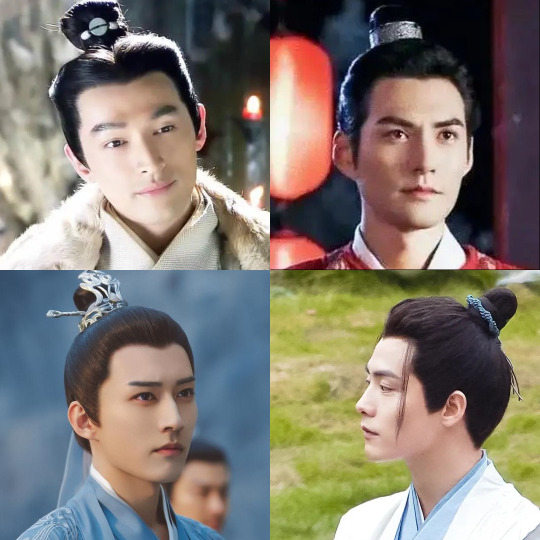
7. 410 notes - Apr 4 2022

8. 291 notes - Dec 13 2022
Q: What hanfu is suitable for high-tea event? The theme was black, white and gold.
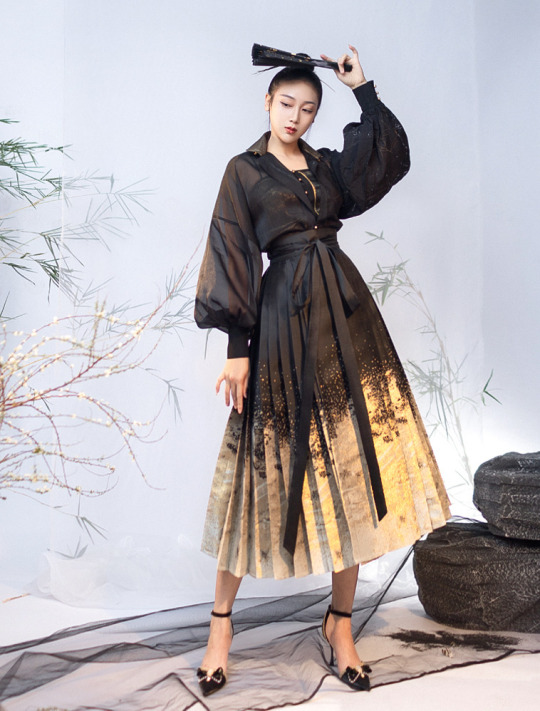
9. 283 notes - Feb 14 2022
Q: I was always taught that ancient Chinese people didn't cut their hair due to filial piety; it disrespected the body given to them by their parents. Would this have been true for every dynasty? Was there ever a period where bangs would have been in fashion?
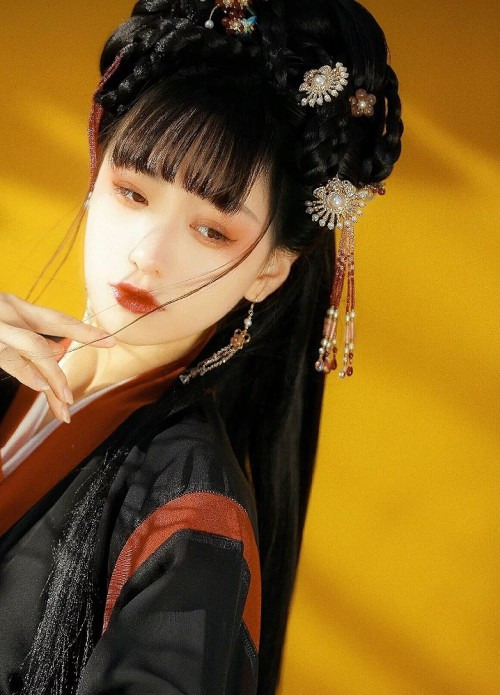
10. 281 notes - May 23 2022
Q: In some cdramas there are dancing scenes. But I saw that not all the dancing scenes are done in Chinese clothes. I saw one scene where they wore a ‘bedlah’. Can I get your input whether this is just modern aesthetic or not.

See previous years here.
Created by TumblrTop10
#tumblrtop10#happy 2023!#2022#hanfu#qipao#ziseviolet#personal#>100#chinese fashion#chinese culture#china
107 notes
·
View notes
Text
2023 was the year I disappeared down the Asian Drama Sinkhole. This year I found myself struggling with persistent fatigue that made it hard to read books, and absolutely vital to spend large amounts of time just resting and recuperating. Before 2023, in my whole life, I'd watched 3 dramas from start to end. In 2023 I consumed over 25. And I had so much fun that I've found it very difficult to interest myself in watching anything else.
I'm content with this use of my time because it's been a wonderful way to work on my long-form storytelling skills - time spent watching stuff as an author is never totally wasted. But the West makes television too, and I've spent my whole life being completely indifferent to it. All year I've been asking myself why I find Asian drama SO addictive and SO much fun compared with Western TV, which so often feels disappointing or a chore. After some thought, I've boiled it down to five basic reasons.
Structure. Asian dramas may vary in length anywhere from 10 to 70 episodes, but the vast majority of them have a discrete, self-contained story to tell. You get one season of a show, and once it's over, the story is complete. My biggest peeve with Western TV has always been the insistence on dragging a story out over multiple seasons of declining quality. The story never wraps up in a satisfying way; it just gets flogged to death. In recent years Western TV has compounded the problem by cancelling shows before their original story arc is even complete. With Asian drama, you don't have to worry about that. At least you always know you'll be getting a complete story.
Standalones. Related is the fact that Asian drama has resisted the urge to create vast IP story worlds like Star Wars or Marvel. This doesn't mean their storytelling isn't derivative - just that instead of trying to tell new stories with old characters, they're more likely to tell the same stories with new characters, which I honestly think is a more natural and creative way to do it. In an age of endless IPs, reboots, remakes, and retellings, Asian drama is making hundreds of new and unconnected stories. While many of these are adaptations of webtoons and novels, of course, to a Western newcomer the sense of novelty and variety is absolutely intoxicating.
Settings. Asian drama focuses on Asian affairs, history, and folklore. Western TV focuses on American affairs and sometimes English history; whenever it ventures beyond these limited interests it usually stereotypes them. It's not that Asian drama doesn't also have these pitfalls, but the part of me that wants to learn about the world beyond the English-speaking bits goes brrrr when it sees an Asian drama. I've long adored some limited examples of the wuxia genre in Chinese film, but now on top of that, I'm also getting Chinese xianxia and Korean sageuk and Thai romantic comedies and all the happy learning parts of my brain are lit up like a Christmas tree.
Relationships and Characters. Asian drama has a big, swoony, unapologetic focus on romance. Not all kdrama/cdrama relationships work for me, of course - wanting to stab the male lead is an occupational hazard - but Asian drama is interested in romance at a level that simply doesn't seem to exist anymore in Western media. Related to this is an emphasis on relationships of every sort - romantic, familial, platonic - and detailed, lovable character work to support them. My best guess for why Western media falls short in this area is that for decades it has been sacrificed on the altar of Joseph Campbell's Hero's Journey, which sees romance and relationships as an obstacle to the hero which must be shed in order for him to achieve his goal. I'm deeply happy to have found a whole part of the world that chose to disregard this fatheaded notion.
Content. Naturally I must preface this by saying that many Asian countries do contain content that is VERY BAD and potentially triggering. Ageism, classism, lookism and sexism are all deeply engrained into Asian drama to the point that if one day I conceive a violent disgust for them this will probably be why. But that's a topic for another day. Where this benefits me, personally, is that Asian dramas don't usually push the envelope when it comes to explicit content. While the presence of such content doesn't rule out a watch for me, it does make it stressful. I just want to relax when I'm watching TV, and I don't find pervasive language, sex, or gore to be relaxing. When Western shows get an MA15+ rating, they usually go all in with that stuff, but Asian drama doesn't seem to have that urge. Explicit violence HAS kept me from watching some highly acclaimed dramas (MOVING is one example) but the vast majority of them, even when they do contain limited amounts of gore or language that get them higher ratings on Western platforms, usually keep such things brief. They are generally demure sexually, and you'll almost always find sexuality being expressed within the context of marriage (even when it's premarital) which is something that as a Christian I do find restful. Again: this is all happening within a cultural framework that ALSO contains disgusting and triggering stuff, even in the better dramas. Personally, I can stomach the insidious stuff a lot better than I can take the in-your-face explicitness of Western TV, and I'm particularly grateful for the blend of demure sexuality with a strong focus on romance: it's taught me a huge amount about creating romantic tension that goes beyond sexual tension.
So there are my five completely honest and personal reasons why I've found Asian dramas to be so fun and restorative this year! One day I might write a post on the things I DON'T like about Asian dramas - but I am lazy, and I am still having fun and finding out what I do or don't like, so maybe that can wait for next year. In the meantime, feel free to hit me up for recs!
11 notes
·
View notes
Text
Been trying to get into the wuxia genre as of late, mainly through webcomics and manhua because it isn't exactly easy to find chinese novels translated into english on a genre obscure in the west. Unfortunately though, it seems like a lot of what I think is within the wuxia genre at least in the medium of manhua and webcomics seems to take a lot from shounen harem isekai wish fulfillment shit where nearly everything I've read so far involves some dude put in a world where the magic system and martial arts are really "life is like a videogame" type shit where they beat the shit out of everything and become gods not too long in and get the girl if not several girls and is essentially a bunch of teenage boy shit. The genre's been around for decades and again I've only been reading it through said mediums so I'm sure most of it isn't like this and I've just been getting unlucky. I just would like to read something from the genre or adjacent to it other than "I'm a chinese warrior who becomes a god in less than 70 chapters tops and am rolling in bitches at level a million."
8 notes
·
View notes
Note
are there any pieces of media that are for you so bad they become enjoyable again?
Not really! I find that when I enjoy something, I don't see it as so bad it's good, but rather as having qualities despite flaws of the source material. And the same way I can find flaws in stuff that's considered high quality. Being enjoyable is a quality in itself and I don't think bad art exists :)
That being said, something that's often considered bad which I love are older wuxia movies and their fight scenes. They carry a blend of physicality and over-the-topness that I've not found in any recent films. The characters run and fly in ways that are distinctly impossible to do in real life, but special effects and stunts are real, they're done by actors and costumes and smoke and whatnot... I find it absolutely delightful to see two blokes go at each other clearly suspended from a bunch of strings and in wigs. For this reason I could not see wuxia working as animated productions, for the way they move and act that I like so much loses it's interest when it's not an actor in the flesh performing directly. For a film like this, I recommend "Chinese Ghost Stories 3". It's shot like an amateur film, the copy I watched was badly dubbed in Mandarin over actors that were clearly not speaking that and also acting in a way you can't call very gripping, but I had a fucking blast
#ask#if you're too used to high budget Hollywood productions to get into it I will also recommend crouching tiger hidden dragon#it's a wuxia but way more polished in that kinda way and more serious even if it keeps the fighting and funny moments#rewatched it this week after years and the fight choreography is insane
7 notes
·
View notes